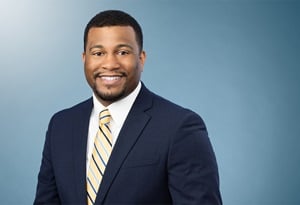New Hampshire Supreme Court Reaffirms UPMIFA’s Standing Requirements
At a Glance
- The New Hampshire Supreme Court’s decision clarifies that the traditional common law “special interest” standing doctrine is abrogated in cases involving completed charitable gifts.
- Appellate level decisions on UPMIFA are rare, so it’s possible — even likely — that courts across the country will look to this decision for guidance in future cases involving “special interest” standing under UPMIFA.
On July 13, 2023, the New Hampshire Supreme Court (the Supreme Court) unanimously affirmed the denial of a third-party motion to intervene in proceedings brought under the Uniform Prudent Management of Institutional Funds Act (UPMIFA), due to the third parties’ lack of standing. In re Robert T. Keeler Maintenance Fund for the Hanover Country Club at Dartmouth College, No. 2022-0145, 2023 WL 4497988 (N.H. Jul. 13, 2023).1 The Supreme Court’s decision clarifies that the traditional common law “special interest” standing doctrine is abrogated in cases involving completed charitable gifts. Appellate level decisions on UPMIFA are rare, so it’s possible — even likely — that courts across the country will look to this decision for guidance in future cases involving “special interest” standing under UPMIFA.
This case arose out of a dispute over an endowment fund that was restricted to support upgrades and maintenance of Dartmouth College’s golf course. After deciding to close the golf course, Dartmouth filed a trial court petition under New Hampshire’s UPMIFA statute (RSA §§ 292-B:1–292-B:10) to modify the restrictions and allow the remaining endowment funds to support Dartmouth’s varsity golf program and other physical education and recreational golf programs run by Dartmouth.
In such a proceeding, New Hampshire’s UPMIFA statute does not provide for the involvement of parties other than the petitioning institution and the state attorney general. However, the Robert T. Keeler Foundation (the Foundation), which was a contingent beneficiary in the donor’s will, and the fiduciary of Keeler’s estate (the Estate) moved to intervene as third parties based on “special interest” standing. They alleged that the remaining funds should be directed to the Foundation, as outlined in Keeler’s will, because such funds were “in excess” of what was necessary to upgrade and maintain the golf course. The trial court denied their motion due to their lack of standing and granted Dartmouth’s petition.
On appeal, the Foundation and the Estate set out two primary arguments, both of which the Supreme Court rejected.
First, they argued that they had “special interest” standing pursuant to In re Trust of Eddy, 212 A.3d 414 (N.H. 2019) because New Hampshire’s UPMIFA statute “embraces existing charitable trust law.” In suits involving charitable trusts, the general common law rule is that “potential trust beneficiaries … may not bring an action to enforce the terms of such a trust.” But New Hampshire recognizes an exception to this general rule “‘when a clearly identified class’ of potential beneficiaries has a ‘special interest’ in the enforcement of a charitable trust.” In re Trust of Eddy adopted the so-called “Blasko test” to determine whether the potential beneficiary of a charitable trust has special interest standing to bring affirmative claims against the trustees of a trust. See Mary Grace Blasko, Curt S. Crossley and David Lloyd, Standing to Sue in the Charitable Sector, 28 U.S.F. L. Rev. 37, 61 (1993). However, the Supreme Court rejected this attempt to extend In re Trust of Eddy to In re Keeler based on factual differences, including that (1) Keeler involved a completed charitable gift, rather than an ongoing charitable trust as in Eddy; and (2) Keeler concerned UPMIFA, while Eddy did not. Furthermore, the Supreme Court noted that it could not find any case in which a court applied the Blasko test to determine whether a deceased donor’s estate and a former contingent beneficiary had special interest standing to intervene in a proceeding brought under UPMIFA.
Second, they argued that denial of their motion to intervene violated the state and federal constitutions because it deprived them of a “vested interest” in the funds. Their argument was rooted in the cy pres doctrine, which at common law allowed for modification of a trust upon the satisfaction of certain conditions — including a general charitable intent (which they argued was absent here). But the Supreme Court determined this was a straw man, as cy pres was modified by New Hampshire’s adoption of the Uniform Trust Code, which does not require a general charitable intent. More importantly, the Supreme Court held that UPMIFA, which applies here, does not require proof of a general charitable intent. When the charitable purpose of a fund or restriction becomes unlawful, impracticable, impossible to achieve or wasteful, UPMIFA allows a court to modify the purpose of a fund or a restriction on the use of the fund in a manner consistent with the charitable purposes expressed in the gift instrument without being bound by the common law cy pres doctrine.2
This decision should provide some assurance to universities, colleges, foundations and other nonprofit organizations that third-party intervenors will not be granted standing to intervene where a petitioner seeks to modify restrictions governing an institutional fund that has been created by a completed charitable gift.
- This opinion has not yet been released for publication in the permanent law reports. Until released, it is subject to revision or withdrawal.
- The Supreme Court declined to address the viability of a potential breach of contract claim by the Estate against Dartmouth based on Dartmouth’s alleged violation of the gift instrument that established the endowment fund.
The material contained in this communication is informational, general in nature and does not constitute legal advice. The material contained in this communication should not be relied upon or used without consulting a lawyer to consider your specific circumstances. This communication was published on the date specified and may not include any changes in the topics, laws, rules or regulations covered. Receipt of this communication does not establish an attorney-client relationship. In some jurisdictions, this communication may be considered attorney advertising.





